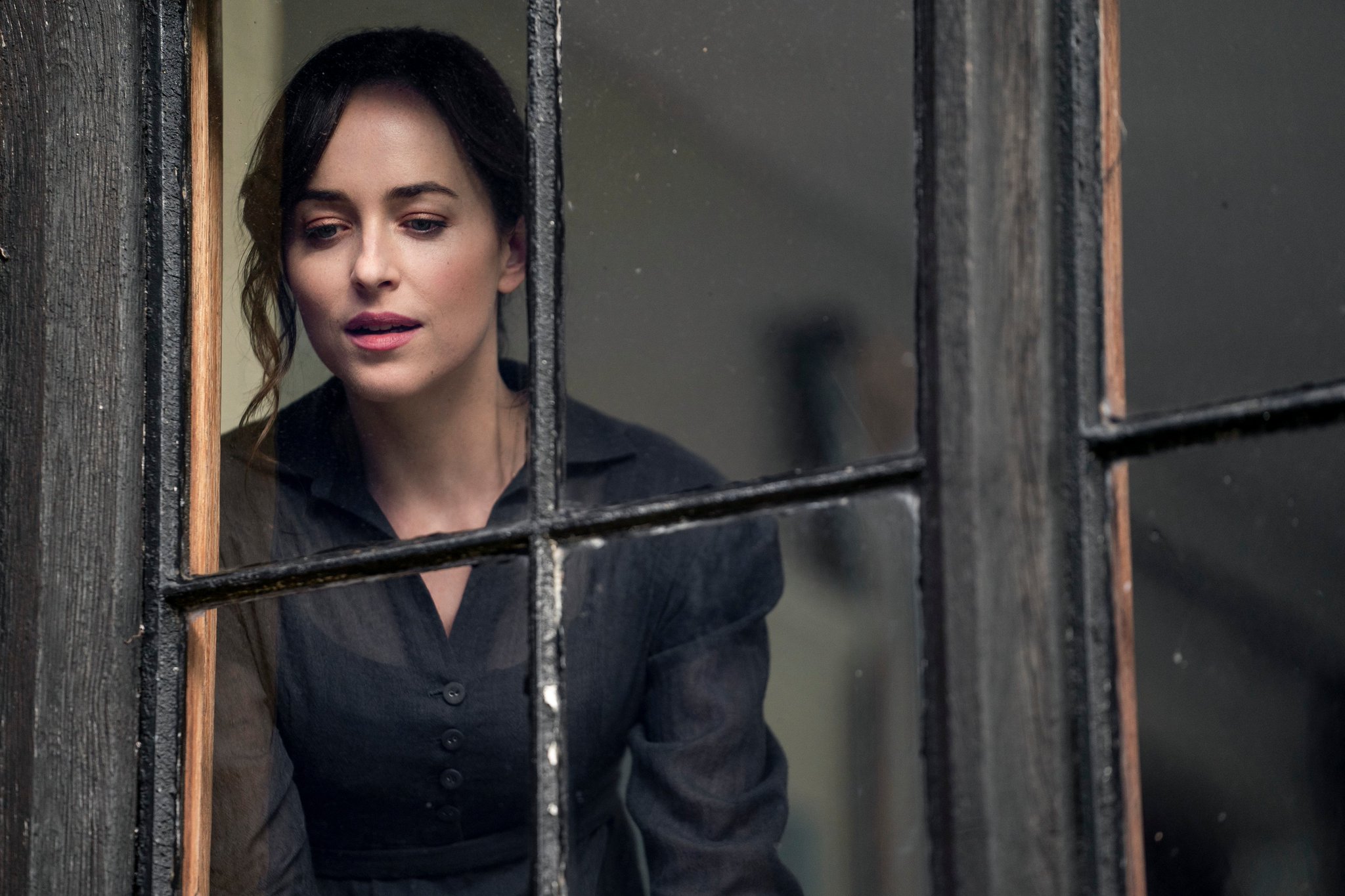
Sci & Tech Editor Leah Renz is disappointed with Netflix’s Persuasion, finding it lacking both as an adaptation and as a romantic film
Director Carrie Cracknell’s adaptation of Jane Austen’s Persuasion throws up a lot of questions. Why is Anne (Dakota Johnson) incessantly monologuing and smirking at the audience? Why does she keep a cow bell as a keepsake of her young love? Why does she commit so hard to an impersonation that she upends a still full breadbasket and smears jam on her face? There are many more questions of this ilk, and they are all answered with the devastating desire of the producers to be both funny and relatable, whilst achieving neither.
Modelled on the wit of Phoebe Waller Bridge’s Fleabag and the loveable clumsiness of Bridget Jones, Cracknell’s version of Anne attempts to continue this noble lineage of funny, relatable female protagonists. Except that whilst Fleabag and Bridget Jones’ Diary are genuinely creative, Cracknell’s version manages to epitomise everything that has become annoying about this now overdone trope, from the constant reference to wine-drinking to the snarky asides about various less-enlightened family members. All this is done through the medium of internet-buzzword language, a device which already feels anachronistic in 2022, let alone in ten years’ time when, one hopes, phrases like ‘I’m an empath’ are no longer flying around.
I do not blame Dakota Johnson for this, but she is horribly miscast as Anne
For Austen purists, however, or indeed anyone who knows anything about Austen’s novels, a greater query looms: if Cracknell wished to direct an ironical, playful Austen story, why pick Persuasion? Written towards the end of Austen’s life, Persuasion is a tale suffused with quiet yearning and regret. Two young lovers part ways but then continue, privately, to long after one another for the next eight years before finally, accidentally, reuniting again.
Both Anne and Wentworth are reserved types, not witty conversationalists, and their story is a testament to the power of enduring love rather than the butterflies of flirtation. I do not blame Dakota Johnson for this, but she is horribly miscast as Anne; she is far too self-confident, chatty, and blatantly attractive to be a silent-but-violently yearning awkward introvert. Northanger Abbey on the other hand, referred to on Goodreads as ‘Gothic parody’, sounds like it could be an excellent candidate for this treatment.
Grievous errors though they are, none of these questions form the basis of my greatest critique of Cracknell’s Persuasion. The modernised language, though mostly cringe-inducing, has at times the potential of being so bad it is good; Anne’s sister (Mia McKenna-Bruce) for example is such a thoroughly two-dimensional character that she is great fun to watch on screen. Similarly, Anne rifling through yellowed sheet music and telling us that this is the ‘playlist’ Wentworth made for her is, if not actually funny, somewhat amusing if one is in a charitably giggly mood.

No, weird attempts at humour aside, my greatest question to the producers of Persuasion is this: how on earth did you go through this film without realising that there is no discernible chemistry between the two leads? You may butcher the vibes, mangle the characters, and besmirch the beauty of the English language, but it is thoroughly unacceptable to not deliver on the romance. Not only does Persuasion fail to be an interesting and creative adaptation of Austen; it does not even manage to be a passably entertaining and believable love story.
There is no indication that the Anne and Wentworth of this adaptation would be able to hold anything more than a mind-numbingly dull conversation
Dakota Johnson as Anne is a beautiful, sassy woman who energetically runs through trees with children and shouts out of windows before tipping gravy onto herself. As such, she is an awful match for the wet wipe that is Wentworth (Cosmo Jarvis), a man whose facial expressions swing somewhere between slightly woeful and vaguely wounded. Their intense love and yearning for one another exists only as hearsay; there is no indication that the Anne and Wentworth of this adaptation would be able to hold anything more than a mind-numbingly dull conversation, let alone a love which lasts through eight long years.
It seems to me as if the producers did not have enough faith in the original material, perhaps believing that a humble, quiet heroine is too dull, or a love that lasts across eight years too unrealistic. If only they had tried to stay true to the story, so beloved by millions, we might have had a truly beautiful and moving romance on our hands.
Verdict:
Unfortunately, no amount of beautiful scenery, diverse casting, or Henry Golding’s charm as Mr Elliot, could save this adaptation of Persuasion from insipid inadequacy and frank disrespect to Austen lovers and fans of regency romance alike. I can only hope that this review persuades you to give this one a miss or, if not, to emulate Johnson’s Anne and watch it alone with a bottle of wine and Beethoven’s Symphony No. 5 in C Minor playing at an obnoxiously high volume.
Rating: 4/10
Persuasion is available now on Netflix.
For more recent releases, check out these Redbrick Film articles:

Comments